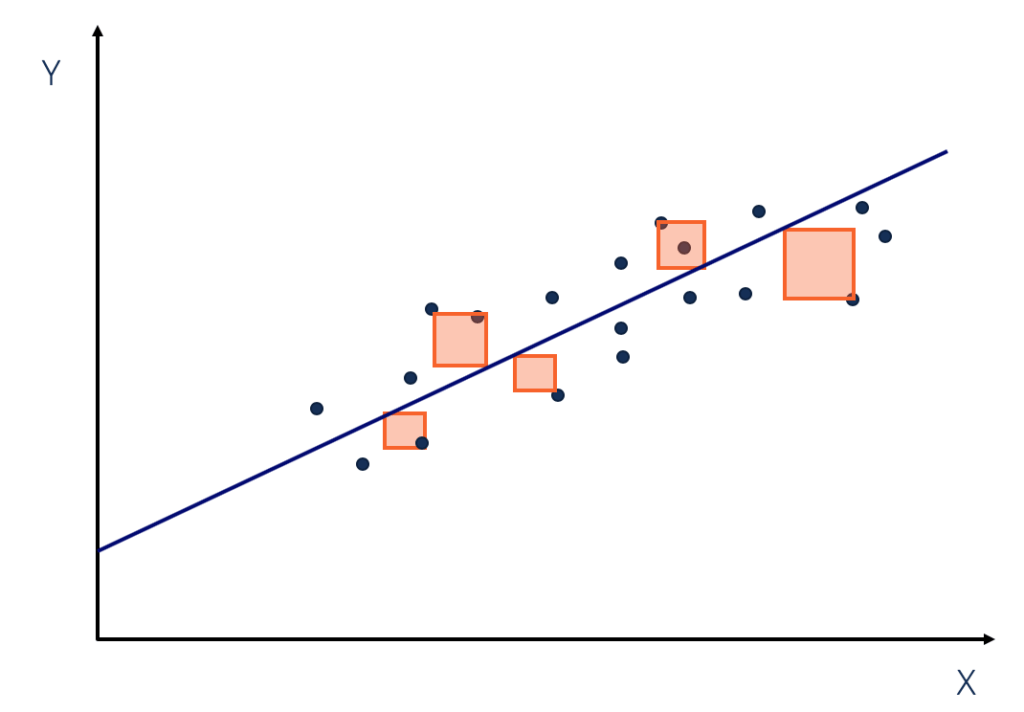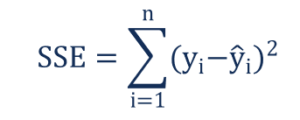How To Find The Sum Of The Squared Residuals
What is Sum of Squares?
Sum of squares (SS) is a statistical tool that is used to identify the dispersion of information likewise as how well the data can fit the model in regression analysis . The sum of squares got its proper noun because it is calculated by finding the sum of the squared differences.

This epitome is but for illustrative purposes.
The sum of squares is 1 of the most important outputs in regression analysis. The general rule is that a smaller sum of squares indicates a better model, equally at that place is less variation in the data.
In finance, agreement the sum of squares is important because linear regression models are widely used in both theoretical and applied finance.
Types of Sum of Squares
In regression analysis, the iii chief types of sum of squares are the total sum of squares, regression sum of squares, and residual sum of squares.
1. Full sum of squares
The total sum of squares is a variation of the values of a dependent variable from the sample mean of the dependent variable. Substantially, the total sum of squares quantifies the total variation in a sample. It tin can be determined using the following formula:

Where:
- yi– the value in a sample
- ȳ– the mean value of a sample
2. Regression sum of squares (likewise known every bit the sum of squares due to regression or explained sum of squares)
The regression sum of squares describes how well a regression model represents the modeled data. A college regression sum of squares indicates that the model does not fit the data well.
The formula for calculating the regression sum of squares is:

Where:
- ŷi– the value estimated past the regression line
- ȳ – the mean value of a sample
3. Remainder sum of squares (also known as the sum of squared errors of prediction)
The residue sum of squares essentially measures the variation of modeling errors. In other words, it depicts how the variation in the dependent variable in a regression model cannot be explained by the model. Generally, a lower residual sum of squares indicates that the regression model tin amend explicate the data, while a higher rest sum of squares indicates that the model poorly explains the data.
The residual sum of squares tin be institute using the formula below:

Where:
- yi– the observed value
- ŷi– the value estimated by the regression line
The human relationship between the three types of sum of squares can be summarized by the post-obit equation:
![]()
Additional Resources
Give thanks you for reading CFI's guide to Sum of Squares. To continue learning and advancing your career, the following CFI resources will exist helpful:
- Guide to Financial Modeling
- Harmonic Mean
- Hypothesis Testing
- three Statement Model
Source: https://corporatefinanceinstitute.com/resources/knowledge/other/sum-of-squares/
Posted by: boddieyoubecient.blogspot.com


0 Response to "How To Find The Sum Of The Squared Residuals"
Post a Comment